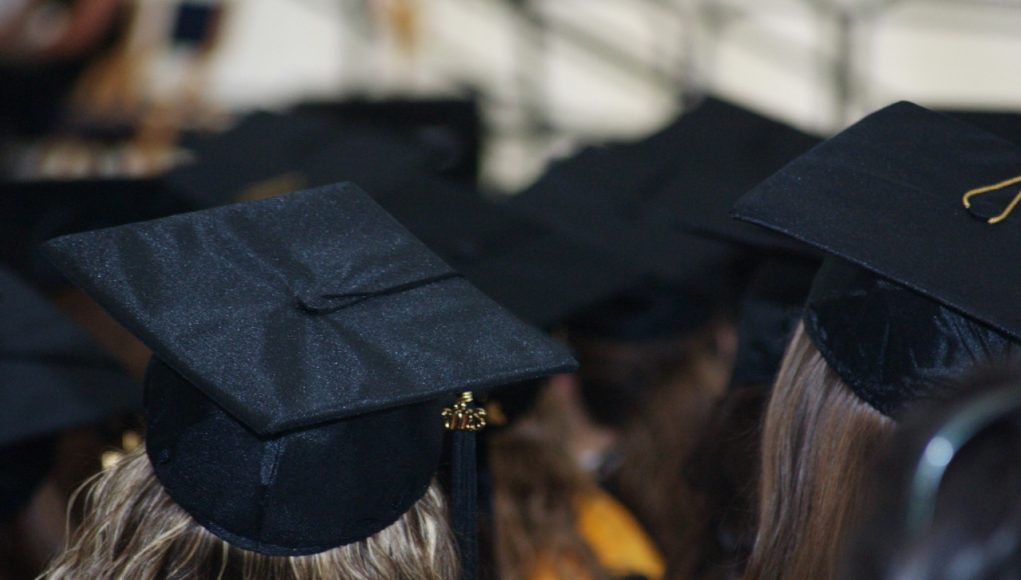For Estiven Zhen, an undocumented student from Colombia, qualifying for in-state tuition would “take a huge financial burden off our backs.” Additionally, having an in-state tuition impacts the decision making (process) because it all depends on how much our families are able to afford. Most ‘good’ schools have a high tuition rate and, because of that, most of us undocumented students tend to go straight into the workforce because it’s not worth it to spend so much money on something, where instead, you could be making money to support your family.” Zhen will be attending Edgewood College this fall on a full-tuition scholarship to study business.
For Selina Armenta, an undocumented student from Mexico, being eligible for in-state tuition “would definitely be a game changer for (her and her) family.” Armenta is a rising junior at the University of Wisconsin-Madison and a PEOPLE scholar. Despite having a full-tuition scholarship she still has to work two jobs during the school year to support herself and to cover other college-related costs such as books, school materials, food, and other personal expenses. “Although I have been fortunate enough to have my tuition paid for the past two years I always fear that that may not be the case for the remaining semesters. It would give me a sense of relief and security to have in-state tuition and lessen my financial burden, especially as someone who aspires to continue on to law school upon completing my undergrad. I know it would make my parents feel more financially secure as well if they knew that my tuition was only about a third of what it currently is…It would allow my parents to increase their savings and give them a sense of security when it comes to my education and the future of our family,” Armenta noted. Armenta aspires to attend law school after completing her undergraduate degree to become an immigration lawyer.
Zhen and Armenta are two of approximately 11.2 million undocumented immigrants residing in the United States. Each year, an estimated 65,000 undocumented students graduate from American high schools, often at the top of their class. Sadly, only five to 10 percent of them go to college, usually a community college. They have the potential to be future doctors, nurses, teachers, and entrepreneurs, but they experience unique hurdles to achieving success in this country. Through no fault of their own, their lack of status may prevent them from attending college or working legally. Undocumented students have been said to be some of the most motivated and hard working students. The barriers that are set in their path push them to achieve and persevere, especially in school. They see education as the only way out of poverty and the only way of achieving the American Dream, for both themselves and their families. Their dreams of attending college in the United States are put on hold due to their inability to pay for college. Due to their lack of legal status, undocumented students are often considered “international students” and are forced to pay out-of-state or even international tuition despite having lived in the U.S for most of their lives.
Compounding the issues, their lack of a social security number makes them ineligible to receive any type of federal financial aid, which includes the FAFSA and grants or scholarships given out by public schools, since they are funded by the government. The outrageously high cost of attendance holds undocumented students back from obtaining their much deserved higher education. Allowing undocumented students to qualify for in-state tuition would benefit the American economy in the long run and would prevent a “brain drain” from occurring in the United States.
Allowing undocumented students to qualify for in-state tuition would benefit the American economy. According to the National Center for Education Statistics, taxpayers invest a grand total of $11,014 per student — including undocumented immigrants — per year to educate them in public schools. Taxpayers have already invested in their K-12 education, making it counterintuitive to set up barriers to stop them from going to college. Not allowing students educated in the United States to obtain a higher education reduces students ability to be more productive, earn more, and pay more taxes. Studies show that immigrant college graduates earn twice as much as those who did not attend college. This creates millions of dollars in additional revenue and taxes for various states. When young people get college degrees, they earn more, have better lives, and contribute more to their state’s economy, therefore contributing to the overall economy.
Offering undocumented students in-state tuition rates is not giving them special treatment; rather, it is leveling out the playing field by giving them the advantages their peers have. The Center for Public Policy Priorities (CPPP) noted that in 2010, undocumented students in Texas paid $32.7 million in total tuition and fees. The CPPP also reported that, “A Texas worker who completes some college can increase their earnings potential by 96 percent. And those with a four-year degree or higher can increase their earning potential by as much as 139 percent. This is a difference between earning a median hourly wage of $9.99 for a Texan who does not complete high school, compared to $14.46 an hour for those who complete some college, and $23.90 for those who obtain a four-year degree or higher.” By denying these students the chance to earn a college education, you are creating a permanent underclass that will have ramifications both for their families and the country, as a whole, in the future.
Allowing undocumented students to pay in-state tuition rates will prevent a “brain-drain” from the United States. As President Barack Obama stated in an immigration speech he gave in 2012,
It makes no sense to expel talented young people who, for all intents and purposes, are Americans. They’ve been raised as Americans, understand themselves to be part of this country. To expel these young people who want to staff our labs or start new businesses or defend our country simply because of the actions of their parents or because of the inactions of politicians [is not just] (The New York Times).
It does not seem correct to say, “I’m sorry you can’t be doctors, nurses, and teachers,” when we are struggling to find people to fill those roles. Expelling talented and much needed individuals who have been educated through the public education system does not seem reasonable. The Urban Institute estimates that approximately 65,000 students around the country would be eligible for this tuition benefit. The actual number of students who would take advantage is very small. Even in states where this legislation is enacted, the number of undocumented students enrolling in college under this tuition benefit is much smaller than expected. This is due to fear of deportation, among other factors.
With immigration being a controversial topic, many Americans believe that allowing undocumented students to in-state tuition would attract more immigrants. But the facts don’t bear this out. According to the American Immigration Council, the 10 states which, since 2001, have passed laws allowing undocumented students to qualify for in-state tuition have not experienced a large influx of new immigrant students that displaces native-born students. These states (Texas, California, Utah, Washington, New York, Oklahoma, Illinois, Kansas, New Mexico, and Nebraska) are home to about half of the nation’s undocumented immigrants. In fact, these laws actually tend to increase school revenue as students who would not normally attend college start to pay tuition. The nation’s future depends on the development of intellectual capital and a more educated workforce. If college is within reach, students will be encouraged to excel in high school, and families will be encouraged to make the sacrifices needed to pay for college. In the absence of in-state tuition rates and limited access to funding, students may underperform in high school and dropout. Without educational opportunities, they are more likely to become part of a permanent underclass in society with added social costs. The loss of potential, productivity, and hope for undocumented students is also a loss for this country. The United States is missing out on talented workers and entrepreneurs, and is losing vital tax revenues and other economic contributions. Despite not having a nine-digit number or a birth certificate, they too, are American. They have grown up in this country, learned the history, and assimilated into the culture. They deserve a shot at obtaining a higher education and achieving their American Dream.




























